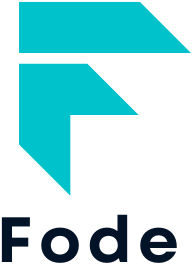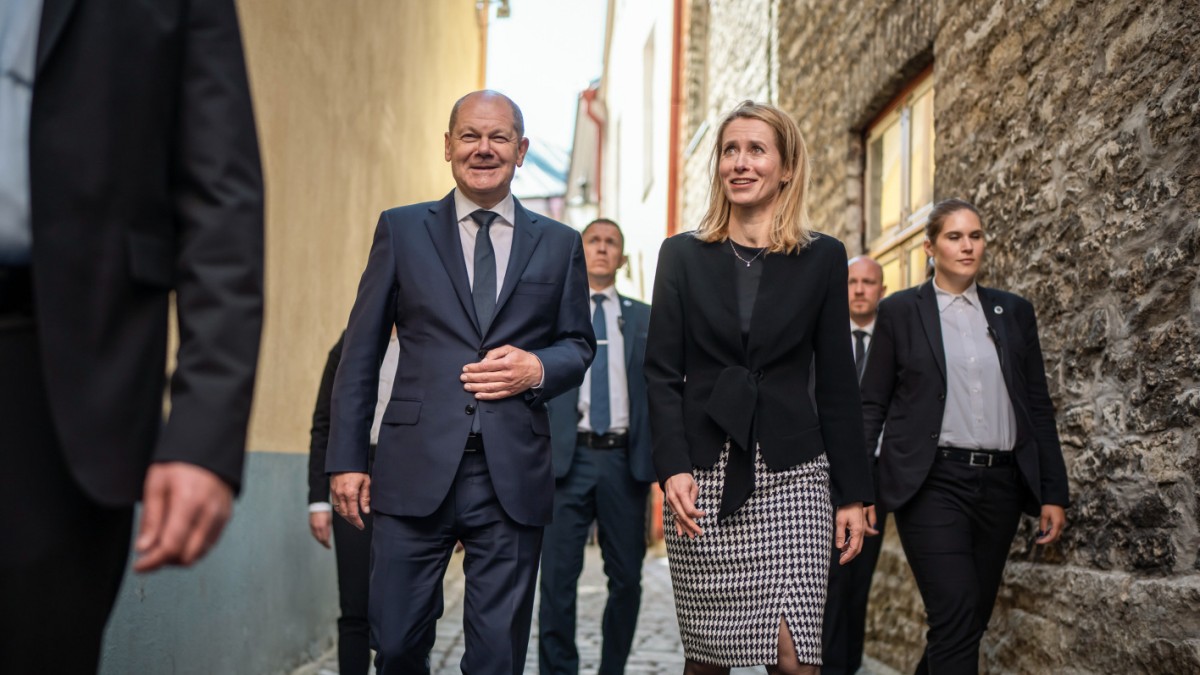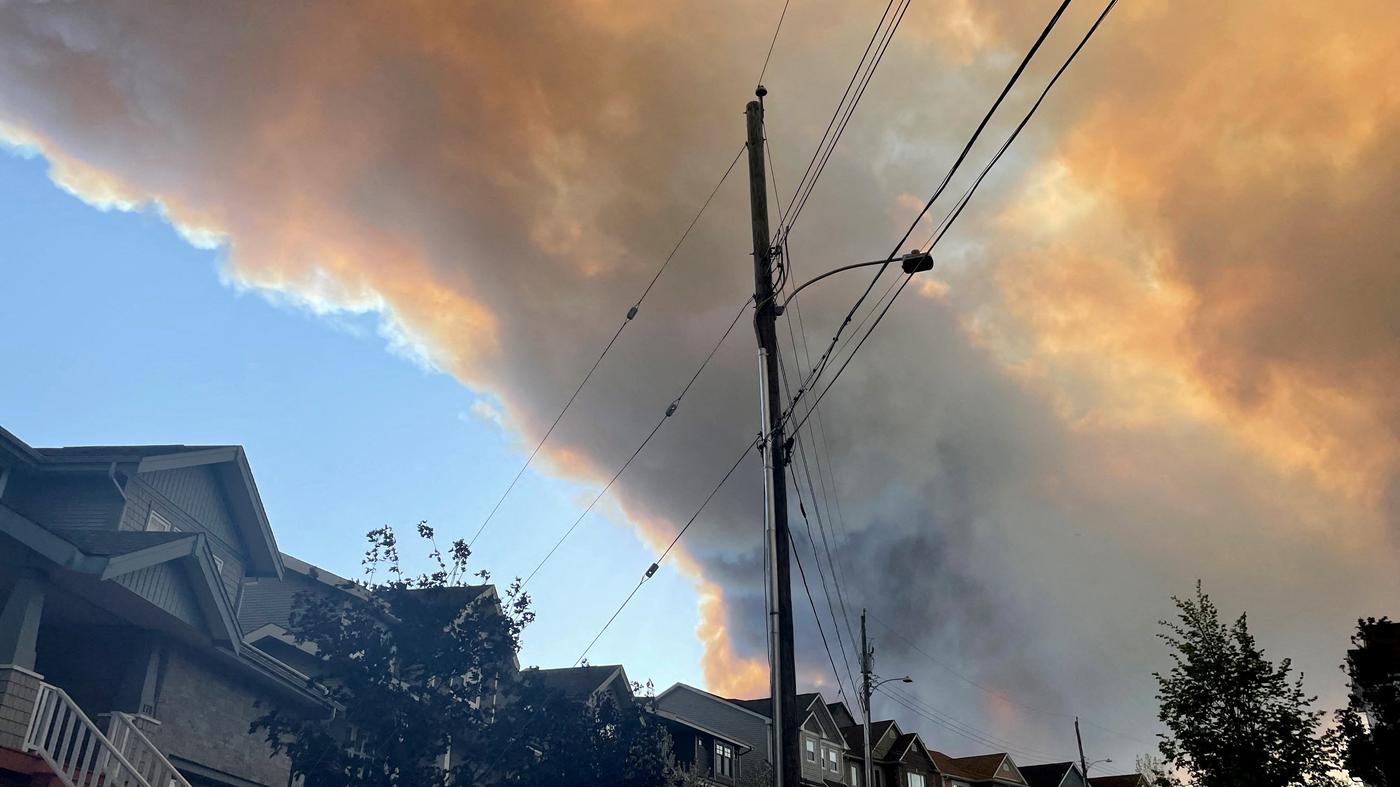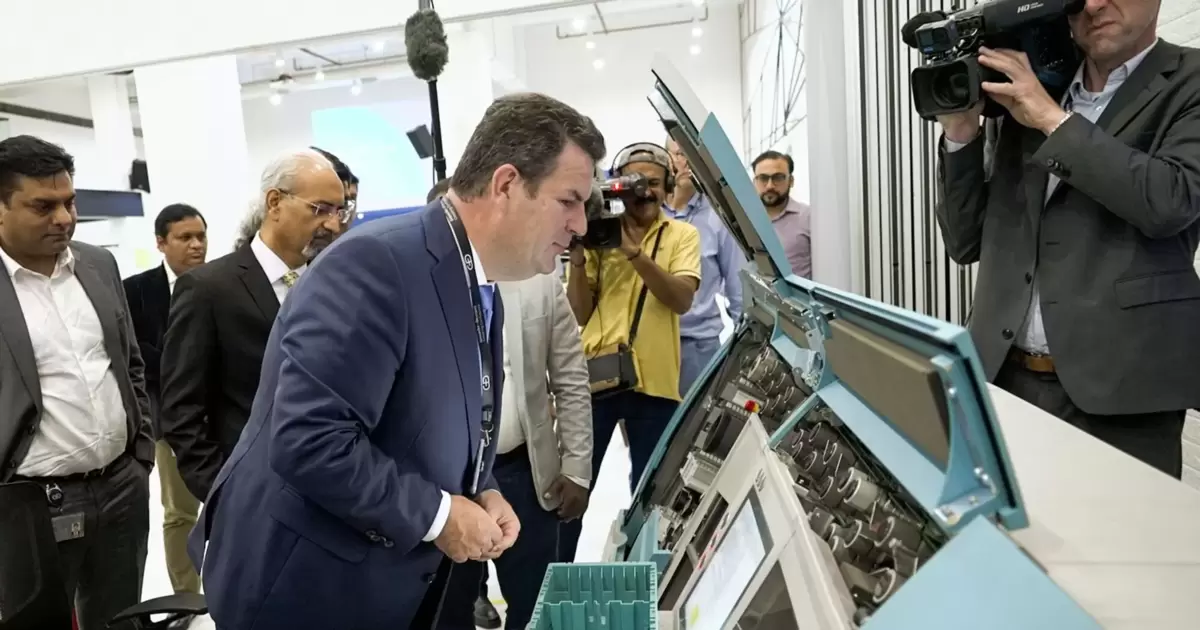Perhaps the Estonian authorities had noticed the security breach with the Chancellor on Thursday evening at Frankfurt airport, when a man with his private car joined the motorcade and Olaf Scholz first shook hands with the apron, then even hugged him. When the head of the German government landed in Tallinn on Friday, two military helicopters were already hovering in the air, accompanying the convoy to the Stenbockhaus, the seat of government, where Prime Minister Kaja Kallas would receive him.
A few months ago there were still great doubts in the Baltic States as to whether Germany was a reliable ally. In Berlin, it was a question of whether the Federal Republic of Ukraine would also provide combat tanks and infantry fighting vehicles to defend against the attack of the Russian army. The Chancellor’s hesitation has caused serious irritation in the traditionally close and good relations with Estonia, Latvia and Lithuania.
For these NATO partners, the war in Ukraine is an existential issue. Not only since February 24 last year have they feared that Russian President Vladimir Putin’s imperialist ambitions will not end in Ukraine. Germany has become Ukraine’s most important supporter after the United States. We are delighted, says Kallas, that the three Baltic countries will have the opportunity to meet with the head of the German government, this important ally, before the NATO summit in mid-July in Vilnius, the Lithuanian capital.
The three Baltic states demand that Germany take on a “leading role”.
Latvian Prime Minister Arturs Krišjānis Kariņš and his Lithuanian colleague Ingrida Šimonytė join them a little later in the Chancellor’s office; the hostess and the chancellor await you there after your stroll through the cobbled streets of Tallinn’s old town. However, expectations of Germany remain high, with a view to supporting Ukraine and defending the eastern flank of the transatlantic alliance. For security and peace in Europe, it is necessary for Germany to assume “a leading role” in NATO and in the EU, which must put itself in a position to defend itself militarily.
The three Baltic heads of government made it clear that they wanted Germany to support Ukraine’s clear prospect of joining NATO, for example a formal invitation to the Vilnius summit. It would be very sad if the Kremlin could sell the results of the leaders’ meeting as a success in its efforts to keep Ukraine out of the alliance, Lithuanian Prime Minister Šimonytė said. That is why it is important to find the right words in Vilnius.
Although the German government supports the prospect of membership formulated in Bucharest in 2008 and without a fixed date, it also underlines that Ukraine cannot join the alliance as long as it is at war with Russia and that the question of its borders were not finally specified.
Šimonytė thanked Germany for its commitment to the region. The Bundeswehr leads a multinational NATO combat unit in Lithuania with a total strength of around 1,700 troops, including around 1,000 Bundeswehr personnel. Britain and Canada are responsible for units in Estonia and Latvia. With this forward presence, Allianz responded to Russia’s annexation of Crimea in 2017.
Vilnius would like to see the German brigade permanently stationed in the country
Scholz also promised Lithuania in the summer of 2022 to provide a full defense brigade. The Bundeswehr permanently stationed parts of the command post at the Rukla site; it is the link with the Lithuanian Armed Forces. However, the government in Vilnius would like to see Germany station the entire brigade with around 3,500-4,000 troops permanently in the country and not prepare them in Germany for a quick transfer as planned by the federal government.
In order to effectively deter Putin, “the boots are on the ground,” Šimonytė said, referring to recent Kremlin announcements that Russian nuclear weapons were being transferred to Belarusian territory. NATO’s entire eastern flank must also be protected by ground-based anti-aircraft systems, she demanded. The Baltic States participate in the German initiative European Sky Shield for the joint purchase of such systems and the establishment of an integrated European air defence.
Estonia and Latvia also want the German air defense system Iris-T buy, as confirmed by Latvian Prime Minister Kariņš. Germany delivered the system from Überlingen-based manufacturer Diehl Defence, to Ukraine, where it proved extremely effective in countering Russian guided missiles. The decision was announced by Estonian Defense Minister Hanno Pevkur on Sunday in Riga after a meeting with Latvian Defense Minister Inara Murniece. Details are not yet known, but it would be the biggest arms deal since Latvia’s independence from the Soviet Union in 1991; we are talking about several hundred million euros.
Scholz again assured the Baltic states that Germany was ready “to defend every square inch of NATO territory” and added: “I mean exactly that.” This is why Germany directs its defense towards North-Eastern Europe and participates Eurofighter– Fighter jets in air traffic control in the Baltic States, increased its naval presence in the Baltic Sea and assigned a total of 17,000 troops to NATO’s rapid reaction force. Should German also patriotBatteries will be relocated to Lithuania to protect the NATO summit, as announced by the Federal Ministry of Defense in Berlin in the evening.
However, the Baltic states’ proposal to increase targeted defense spending to three percent of the respective gross domestic product at the Vilnius summit is unlikely to meet with much approval in Berlin. Despite the turning point and the €100 billion special fund for the Bundeswehr in 2022, Germany has clearly missed the agreed 2% target and is unlikely to reach it this year either. The Baltic States, on the other hand, are likely to reach three percent in 2023.

Food geek. Organizer. Tv advocate. Friend of animals everywhere. Devoted thinker. Problem solver. Wannabe pop culture practitioner.







